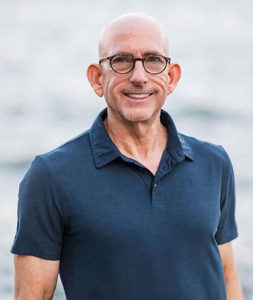If we can identify and solve common choke points, we can remove obstacles that keep us from our best
By Bill Poole
Part 3 of 4
In his book Simplexity: Why Simple Things Become Complex (and How Complex Things Can Be Made Simple), Jeffery Kluger illustrates how complex problems are often caused by simple “choke points.” Traffic has minimal choke points (sometimes just a few minutes differential) that create problematic delays. Economies have choke points. Business processes have choke points that cause a cascade of complex issues for the company and the customer. People have choke points that keep them from growth and development.
Transformational change has many choke points, especially since every person brings their chokepoint to the party. If we can identify and solve primary choke points, we can remove the limiting factors that jeopardize our journey from Oldland to Newland. A leader with a Micro-Manage Mindset (MM) gets stuck at these choke points at many junctures. An executive with a Leader of Leaders’ (LL) mindset and team anticipate these choke points and navigate Newland successfully.
Let’s summarize a few choke points and their solutions that allow us to complete the journey from Oldland to Newland.
Choke Point #1: Leadership: From Push to Pull
A leader with a MM focuses on control and managing change as a project. A leader with a MM lets the other departments handle that “people stuff” with their vulnerable budgets during tough times. A leader with a MM lacks focus on change capability leading to a push-push environment that morphs into the leadership choke point, eventually suffocating a leader with a MM in Oldland.
In contrast, an executive with an LL mindset focuses on developing leaders and holding executives and managers accountable to facilitate leadership and change capability with a core climate of respect and trust. An executive with a LL mindset starts by choosing a wise leader to experience a preliminary journey to assess and plan the process, then gathers a diverse team of Transformers that can influence and are willing to change to initiate, model, and lead the journey. The Transformer Team is chosen for their mindset and skill set. An executive with a LL mindset employs a leader-of-leaders system from beginning to end, both in approach and logistics.
The Great Change exposes Resistors. As the Great Change opens the door of opportunity, an executive with a LL mindset can escort distracting Resistors out the same door if they don’t transform after clear communication, coaching, and support. An executive with a LL mindset can do this with humane intentions, and ethical ease since these principle-centered mindsets and behaviors are communicated as clear boundaries to everyone. Those with a LL mindset have built foundational building block change capability to solve any leadership choke points.
Choke Point #2: Mindset: From Security to Opportunity
American radio speaker and author Earle Nightingale said, “Most of us are so busy looking for security that we can’t see the opportunity.” Change does not bring security, but it brings opportunity, which is the security paradox: “The only way to find security is to not look for security, but to look for opportunity.”
The Great Change creates uncertainty. Uncertainty naturally brings a mindset of fear, anxiety, and loss of security, a devastating choke point for change. But on the positive side of uncertainty is an opportunity, which brings options, possibilities, resourcefulness, and innovation.
A leader with a MM does not address the organization’s mindset. A leader with a MM assumes everyone can see and interpret the Great Change around them as they do. This assumption reinforces a push-push environment, encourages fear rather than security, and doesn’t consider assumptions and mindsets as key foundational factors.
In contrast, an executive with a LL mindset suspends assumptions. A leader with a LL mindset respects and values differences that creates a capability for diverse dialogue and paints a more precise picture of the reality of the Great Change.
Don’t miss the last choke point and what you can do to move from a security to an opportunity environment.

Bill Poole is CEO of J2N Global and author of Journey to Newland.
Read Part 4: How You Communicate Transformational Change Matters
How J2N Global Can Help
Are you an organization facing strategic change? Do you need help building a culture capable of change? Learn how you can benefit from transformational leadership that provides long-lasting change and trust.
Copyright © J2N Global






